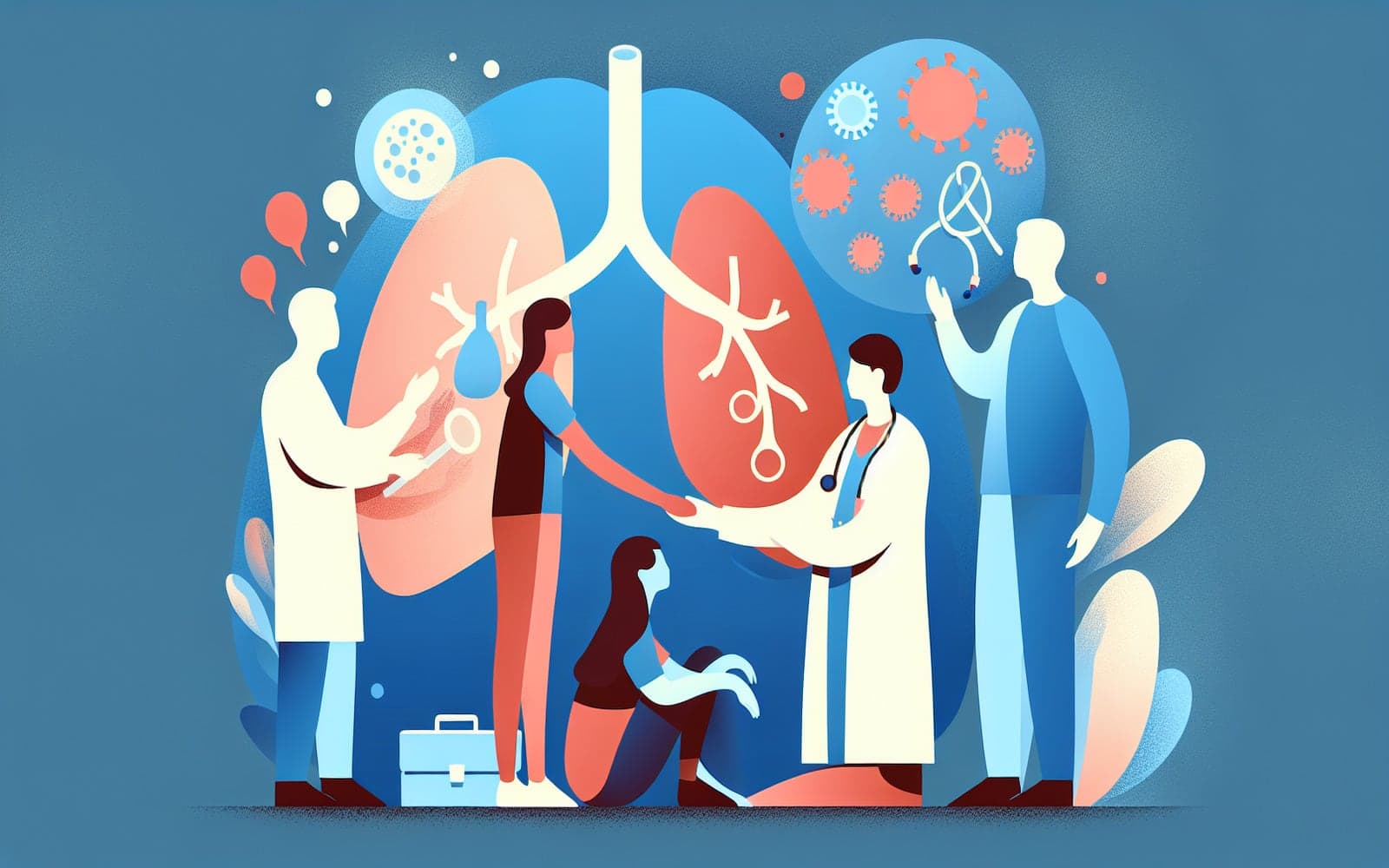Why Are HIV Patients at Risk for Lung Diseases?
Published: Mar 04, 2024
Understanding the risk factors for lung diseases in HIV patients can help manage and prevent these conditions.
Contents
Impact of Immune System Weakness
HIV weakens the immune system, making patients susceptible to infections and other lung diseases. The CD4 count is a key indicator of immune health, with lower counts increasing the risk for conditions like PCP and bacterial pneumonia. ART can help restore some immune function, but many patients remain at risk for lung complications.
Environmental and Lifestyle Factors
Exposure to environmental hazards, like polluted air or crowded living conditions, can worsen lung problems in HIV patients. Smoking is a significant risk factor, as it exacerbates conditions like emphysema. Travel to regions with endemic diseases, such as TB, also poses a risk, requiring careful consideration and preventive measures.

Coinfections and Comorbidities
HIV patients often have multiple health issues that can complicate lung health. Coinfections, like TB and cytomegalovirus, increase disease severity and mortality. Comorbid conditions, such as diabetes or heart disease, may also impact lung health, highlighting the need for comprehensive care and monitoring.
Frequently Asked Questions
It weakens the immune system, increasing infection risk.
It indicates the immune system's strength and risk for lung diseases.
Yes, smoking is a major risk factor for lung diseases.
Key Takeaways
Managing risk factors can significantly improve lung health in HIV patients.
Get started by discussing your risk factors with Doctronic today.Related Articles
References
Petrache I, Diab K, Knox KS, et al. HIV associated pulmonary emphysema: a review of the literature and inquiry into its mechanism. Thorax 2008; 63:463.
Always discuss health information with your healthcare provider.

